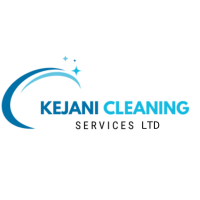As we step further into the 21st century, the office cleaning industry is evolving rapidly, driven by technological advancements, changing work environments, and an increased emphasis on health and sustainability. Here, we explore the significant trends that are shaping the future of office cleaning and how these developments will impact businesses and cleaning professionals.
Technological Advancements in Office Cleaning
Robotics and Automation
One of the most significant trends in office cleaning is the rise of robotic cleaners. These automated machines are designed to perform various cleaning tasks, from vacuuming carpets to mopping floors. Robotic cleaners, equipped with advanced sensors and AI technology, can navigate complex office environments, avoiding obstacles and ensuring thorough cleaning. The integration of robotics not only increases efficiency but also allows for continuous cleaning, which is especially beneficial in high-traffic areas.
IoT and Smart Cleaning Solutions
The Internet of Things (IoT) is revolutionizing office cleaning by enabling the development of smart cleaning solutions. IoT-enabled devices can communicate with each other, providing real-time data on cleaning requirements and equipment status. For example, smart dispensers can alert staff when supplies are low, and smart sensors can monitor cleanliness levels and trigger cleaning actions when necessary. This data-driven approach enhances cleaning efficiency, reduces waste, and ensures a consistently clean environment.
Sustainable Cleaning Practices
Eco-Friendly Cleaning Products
As environmental concerns become more prominent, there is a growing demand for eco-friendly cleaning products. These products are made from natural, biodegradable ingredients that minimize environmental impact and reduce the use of harmful chemicals. By adopting green cleaning products, companies can promote a healthier workplace and contribute to environmental sustainability. Furthermore, using eco-friendly products aligns with corporate social responsibility goals and can enhance a company’s reputation.
Waste Reduction and Recycling
In addition to using eco-friendly products, the office cleaning industry is focusing on waste reduction and recycling. Implementing recycling programs and reducing single-use plastics are key strategies. Cleaning companies are increasingly partnering with businesses to develop comprehensive waste management plans that include sorting recyclables, composting organic waste, and minimizing landfill contributions. These initiatives not only reduce environmental impact but also support a circular economy.
Health and Hygiene Prioritization
Enhanced Disinfection Protocols
The COVID-19 pandemic has underscored the importance of maintaining high standards of health and hygiene in the workplace. As a result, enhanced disinfection protocols have become a standard practice in office cleaning. This includes the use of hospital-grade disinfectants, frequent cleaning of high-touch surfaces, and thorough sanitization of shared spaces. These measures help prevent the spread of infectious diseases and ensure a safe working environment for employees.
Indoor Air Quality Improvement
Another critical aspect of office cleaning is the improvement of indoor air quality. Poor air quality can negatively impact employee health and productivity. Modern office cleaning strategies include regular maintenance of HVAC systems, use of air purifiers, and incorporation of plants that naturally filter the air. By prioritizing air quality, businesses can create a healthier workspace that enhances employee well-being.
Customized Cleaning Services
Flexible Cleaning Schedules
With the rise of remote work and flexible office hours, there is an increasing need for customized cleaning services. Cleaning companies are now offering flexible schedules that cater to the specific needs of each business. This may involve cleaning during off-peak hours to minimize disruption or providing additional services on demand. By tailoring services to individual client requirements, cleaning companies can deliver more effective and efficient solutions.
Specialized Cleaning Services
In addition to flexible schedules, there is a growing demand for specialized cleaning services. This includes services such as deep cleaning, post-construction cleaning, and cleaning of specialized equipment or areas like data centers. Specialized services require trained personnel and specific cleaning techniques to ensure thorough and safe cleaning. Offering these services allows cleaning companies to address unique client needs and differentiate themselves in the market.
Employee Training and Development
Ongoing Training Programs
The future of office cleaning also hinges on the continuous training and development of cleaning staff. Ongoing training programs are essential to keep employees updated on the latest cleaning techniques, safety protocols, and use of advanced cleaning equipment. Comprehensive training ensures that staff can perform their duties effectively and safely, leading to higher quality cleaning and greater client satisfaction.
Emphasis on Soft Skills
In addition to technical training, there is an increasing emphasis on soft skills such as communication, customer service, and problem-solving. Cleaning staff often interact with office employees and need to address their concerns professionally and courteously. Developing these skills enhances the overall service experience and helps build strong client relationships.
Integration of Green Building Standards
LEED and WELL Certifications
Many businesses are now striving to achieve green building certifications such as LEED (Leadership in Energy and Environmental Design) and WELL (Well Building Standard). These certifications recognize buildings that meet high standards for environmental performance and occupant health. Office cleaning plays a crucial role in maintaining these standards by using sustainable cleaning practices and products. Cleaning companies that are knowledgeable about green building standards can offer valuable expertise and services to help clients achieve and maintain certification.
Sustainable Building Maintenance
In addition to achieving certifications, businesses are focusing on sustainable building maintenance. This involves regular upkeep and cleaning practices that support the long-term sustainability of the building. Cleaning companies are adopting practices such as using energy-efficient equipment, reducing water consumption, and minimizing waste. Sustainable maintenance not only supports environmental goals but also extends the lifespan of building materials and systems.
Conclusion
The future of office cleaning is being shaped by technological advancements, sustainability initiatives, health and hygiene priorities, customized services, and employee development. By staying abreast of these trends, businesses and cleaning professionals can ensure they are providing the highest quality service while meeting the evolving needs of the modern workplace.

0 Comments